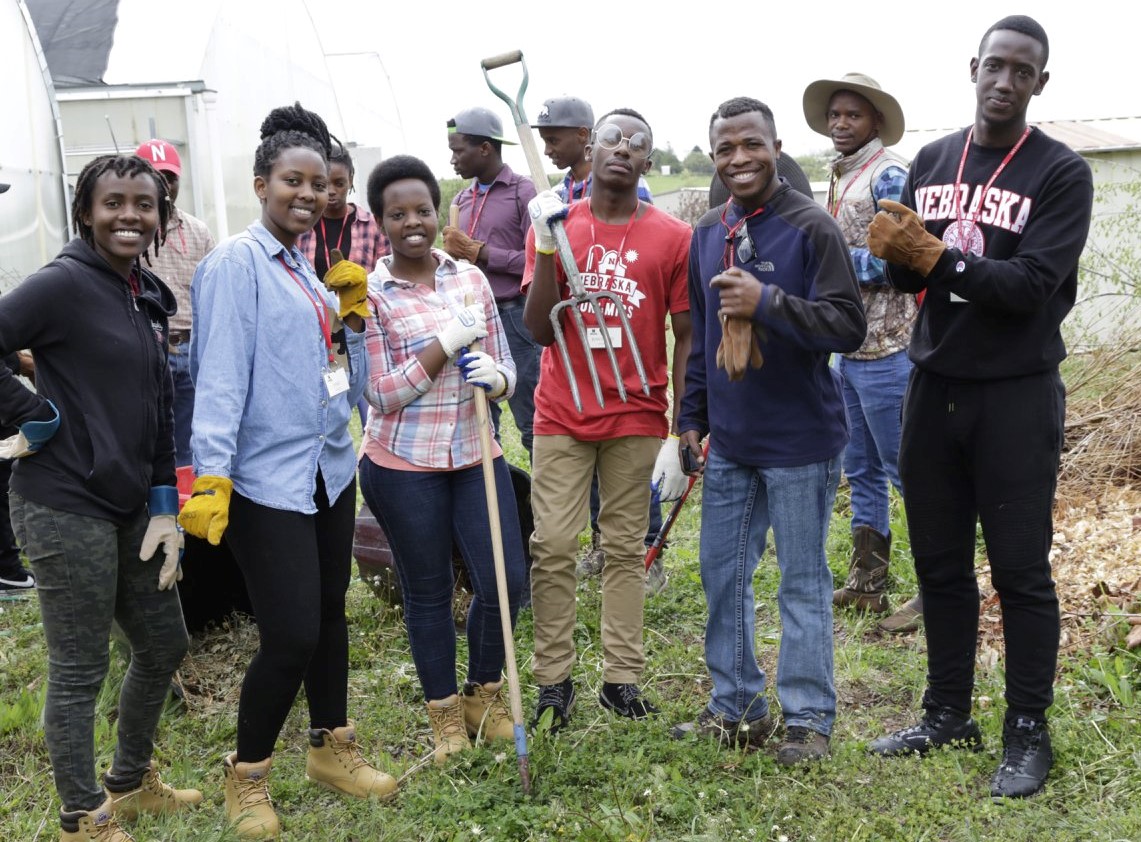Agriculture skills for Rwandans

June 10, 2018
NCTA Dean’s Column by Ron Rosati, Ph.D.
The Nebraska College of Technical Agriculture has concluded its third week with nearly 50 students in the UNL CASNR Undergraduate Scholars Program.
Activities concluded on June 1. We were sad to see our new friends return to Lincoln.
We’ve had a great time in Curtis and on campus conversing with the students, sharing Nebraska agriculture with them, and providing some outstanding basic skills and techniques for agricultural training.
These CUSP students from Rwanda live in Lincoln during their four-year degree program at the University of Nebraska-Lincoln. In early May, they just completed their freshmen year of studies at UNL.
While here at NCTA, the emphasis was beyond agricultural skills development. They were quite engaged in many community, rural and social events and forged relationships with families and individuals in the area.
In their third week of classes, they learned about farm power systems in tractors, small gas engines and maintenance, along with equipment operation of tractors and farm equipment.
Their afternoon courses at veterinary technology emphasized food animal health with livestock pathology, beef quality assurance and proper injections in livestock, clinical pathology and safety in livestock handling.
A highlight in mid-May was a group meeting in Lincoln about their CUSP initiative. The students met with Rwandan government officials and university leaders to discuss the status and impact of the program. The students heard from their Rwandan leaders about the government’s expectation of the students’ involvement in Rwandan agricultural industries after the students return to their home country.
CUSP program staff also came to Curtis to spend time here on campus with NCTA faculty and staff, and the students. The group of visitors included Ann Bruntz of Friend, an alumna of the University of Nebraska School of Technical Agriculture (UNSTA), who shared her wisdom and insight about professionalism and involvement with commodity groups.
Ann and her husband, David, also an UNSTA alumnus, have been associated with the CUSP effort since its inception and are frequent hosts at their farm in Friend of CUSP scholars from program cohorts 1, 2 and now 3.
David is a former president of the Aggie Alumni Association and Ann will be stepping into the role in 2019. They’ve been invaluable friends to this institution, our NCTA students, and now the CUSP scholars.
Many individuals came together to create a successful project here locally for this CUSP group during our inaugural 3-week program of basic agricultural skills development. We appreciate the local families, individuals and businesses who were such gracious hosts in providing tours, meals, picnics, church services, transportation, on-farm activities, social events and hours of recreation such as fishing, playing soccer or joining an impromptu running group for physical fitness.
The CUSP scholars toured vineyards, a feedlot, several family farms, lambing and sheep operation, witnessed livestock handling with stock dogs, a cattle branding, had fun at a rodeo and calf roping action, participated in shotgun sports at the Curtis Trap Club and much, much more.
Before they departed on June 2, we recognized the CUSP students at an evening completion ceremony on May 31 at the Nebraska Agriculture Industry Education Center.
NCTA Mission: The Nebraska College of Technical Agriculture is devoted to a statewide mission of preparing students for successful careers in agriculture, veterinary technology, food and related industries. The college provides open access to innovative technical education resulting in associate degrees, certificates, diplomas and other credentials.
Download a PDF of this press release